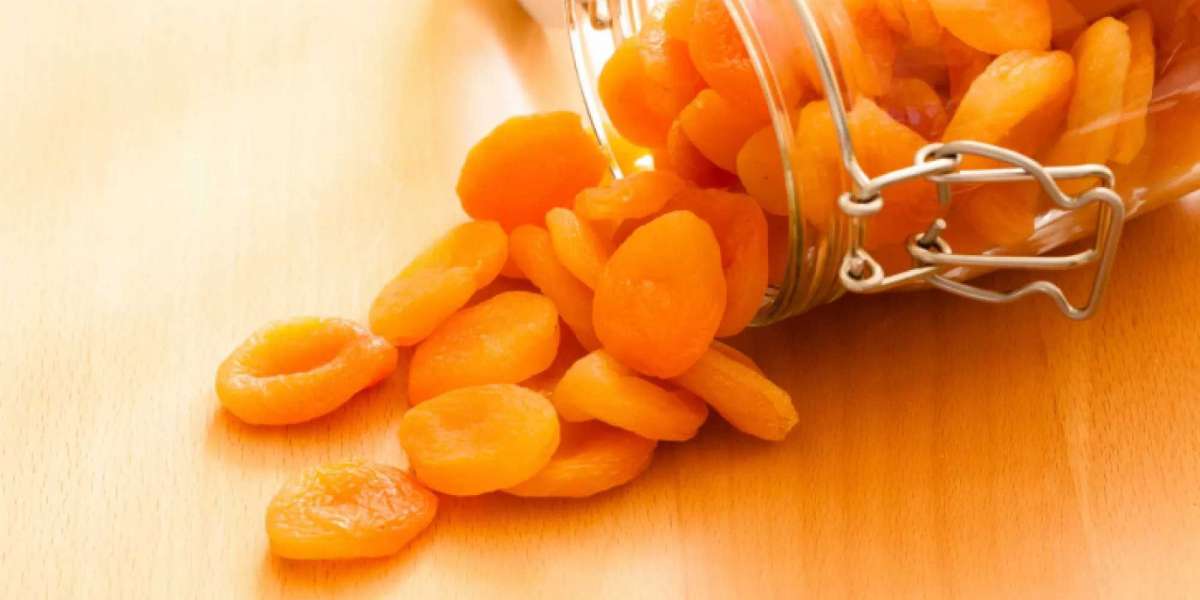When it comes to boosting your iron intake through fruit, few options stand out as impressively as dried apricots. Known for their chewy texture and natural sweetness, dried apricots are more than just a tasty snack, they're a nutritional powerhouse. One of their key health benefits is their relatively high iron content. Dried Apricots Iron levels make them a valuable choice for those looking to support their daily iron requirements, especially in plant-based or vegetarian diets. But how do they actually compare to other fruits when it comes to iron content? Let’s explore their nutritional value in detail.
Dried Apricots: A Rich Plant-Based Source of Iron
Dried apricots are particularly rich in non-heme iron, the form of iron found in plant foods. On average, a 100-gram serving of dried apricots provides around 2.7 milligrams of iron. This is a substantial amount when you consider the daily recommended iron intake for adults, which is around 8 to 18 milligrams depending on age and gender. While the body absorbs non-heme iron less efficiently than heme iron found in meat, dried apricots still make a strong contribution, especially when consumed with vitamin C-rich foods to boost absorption.
Comparing Dried Apricots to Fresh Fruits
Fresh fruits generally contain less iron than their dried counterparts. This is mainly due to the concentration that occurs during the drying process, which removes water and leaves nutrients more densely packed. For instance, fresh apricots contain significantly less iron than dried apricots. Similarly, fruits like apples, grapes, and peaches offer modest iron levels in their fresh form, rarely exceeding 0.5 milligrams per 100 grams. Compared to these, dried apricots clearly offer a more potent iron dose, making them an excellent snack choice for iron-conscious individuals.
How Dried Apricots Compare to Other Dried Fruits
When looking at dried fruits as a whole, dried apricots hold a strong position in terms of iron content. Raisins, for example, provide about 1.9 milligrams of iron per 100 grams, while prunes typically contain around 0.9 milligrams. Dates offer even less, usually under 1 milligram. This comparison highlights the advantage of dried apricots as a go-to option for natural iron intake, outshining many other dried fruits in nutritional density. Their balance of iron, fiber, and antioxidants further enhances their appeal for a healthy diet.
Absorption Matters: Maximizing Iron from Dried Apricots
While dried apricots are high in iron, it’s important to consider absorption factors. Non-heme iron is affected by other components in the diet. Eating dried apricots with a source of vitamin C—such as oranges, bell peppers, or strawberries—can significantly enhance iron absorption. Conversely, pairing them with calcium-rich foods or drinking tea or coffee at the same time may inhibit absorption. Being mindful of these interactions helps ensure you get the most from the iron in your dried apricots.
Dried Apricots in a Balanced Iron-Rich Diet
Incorporating dried apricots into your regular diet is a simple and effective way to increase your overall iron intake. They make an ideal addition to breakfast cereals, yogurt, trail mixes, or can even be enjoyed on their own. Alongside other iron-rich foods like legumes, leafy greens, and fortified grains, dried apricots help round out a plant-focused diet aimed at preventing iron deficiency. Their portability and long shelf life also make them an easy iron boost on the go.
Conclusion: Dried Apricots Stand Out for Iron Content
When compared to both fresh and dried fruits, the Dried Apricots Iron advantage is clear. They offer a richer iron profile than most other fruits, making them a valuable part of an iron-conscious diet. Whether you're aiming to manage anemia, follow a vegetarian lifestyle, or simply diversify your nutrient sources, dried apricots are a flavorful and functional choice. Making them a regular part of your nutrition strategy could be a small but meaningful step toward better health.







